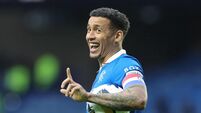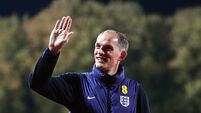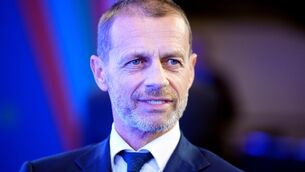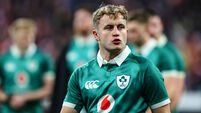Damien Delaney says summer with the Cork minors 'one of the greatest of my life'

HAPPY REBEL: Damien Delaney of Cork City prior to the UEFA Europa League 3rd Qualifying Round First Leg match between Cork City and Rosenborg at Turners Cross in Cork. Photo by Stephen McCarthy/Sportsfile
The admission of former Irish footballer Damien Delaney that his summer with the Cork minors was “one of the greatest of my life” was held up as a shining example of the benefits of non-specialisation in sport by teenagers during Wednesday’s health, exercise, and sport panel discussion at MTU Cork.
In his final summer at home in Cork before moving across the water to begin a two-decade long career in professional football, Delaney was called into the Cork minor football panel for their 1999 championship campaign.











